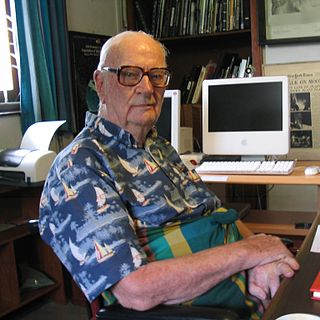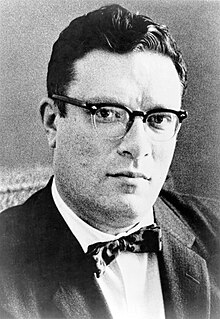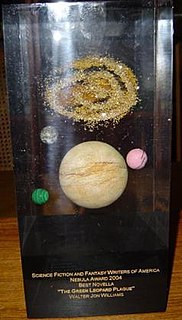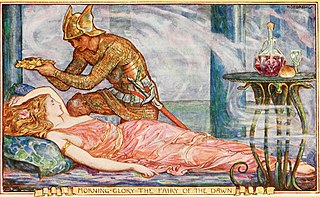
Hard science fiction is a category of science fiction characterized by concern for scientific accuracy and logic. The term was first used in print in 1957 by P. Schuyler Miller in a review of John W. Campbell's Islands of Space in the November issue of Astounding Science Fiction. The complementary term soft science fiction, formed by analogy to hard science fiction, first appeared in the late 1970s. The term is formed by analogy to the popular distinction between the "hard" (natural) and "soft" (social) sciences, although there are examples generally considered as "hard" SF, such as Isaac Asimov's Foundation series, built on mathematical sociology. Science fiction critic Gary Westfahl argues that neither term is part of a rigorous taxonomy; instead they are approximate ways of characterizing stories that reviewers and commentators have found useful.

Isaac Asimov was an American writer and professor of biochemistry at Boston University. During his lifetime, Asimov was considered one of the "Big Three" science fiction writers, along with Robert A. Heinlein and Arthur C. Clarke. A prolific writer, he wrote or edited more than 500 books. He also wrote an estimated 90,000 letters and postcards. Best known for his hard science fiction, Asimov also wrote mysteries and fantasy, as well as much nonfiction.

Poul William Anderson was an American science fiction author from the 1940s until the 21st century. Anderson wrote fantasy novels, historical novels, and short stories. His awards include seven Hugo Awards and three Nebula Awards.

Science fiction is a genre of speculative fiction which typically deals with imaginative and futuristic concepts such as advanced science and technology, space exploration, time travel, parallel universes, extraterrestrial life, sentient artificial intelligence, cybernetics, certain forms of immortality, and the singularity. It has been called the "literature of ideas", and it often explores the potential consequences of scientific, social, and technological innovations.
Science fiction films This is a list of science fiction films organized chronologically. These films have been released to a cinema audience by the commercial film industry and are widely distributed with reviews by reputable critics. This includes silent film–era releases, serial films, and feature-length films. All of the films include core elements of science fiction, but can cross into other genres such as drama, mystery, action, horror, fantasy, and comedy.

Science fiction first appeared in television programming in the late 1930s, during what is called the Golden Age of Science Fiction. Special effects and other production techniques allow creators to present a living visual image of an imaginary world not limited by the constraints of reality.

Toho Co., Ltd. is a Japanese film, theater production and distribution company. It has its headquarters in Chiyoda, Tokyo, and is one of the core companies of the Hankyu Hanshin Toho Group. Outside of Japan, it is best known as the producer and distributor of many kaiju and tokusatsu films, the Chouseishin tokusatsu superhero television franchise, the films of Akira Kurosawa, and the anime films of Studio Ghibli, TMS Entertainment and OLM, Inc. Other famous directors, including Yasujirō Ozu, Kenji Mizoguchi, Masaki Kobayashi, and Mikio Naruse, also directed films for Toho.
Science fiction comedy or comic science fiction is a subgenre of science fiction or science fantasy that exploits the science-fiction (SF) genre's conventions for comedic effect. Comic science fiction often mocks or satirizes standard SF conventions – such as alien invasion of Earth, interstellar travel, or futuristic technology. It can also satirize and criticize present-day society.

Speculative fiction is a broad category of fiction encompassing genres with elements that do not exist in reality, recorded history, nature, or the present universe. Such fiction covers various themes in the context of supernatural, futuristic, and other imaginative realms. The genres under this umbrella category include, but are not limited to, science fiction, fantasy, horror, superhero fiction, alternate history, utopian and dystopian fiction, and supernatural fiction, as well as combinations thereof.

Science fiction is a film genre that uses speculative, fictional science-based depictions of phenomena that are not fully accepted by mainstream science, such as extraterrestrial lifeforms, spacecraft, robots, cyborgs, interstellar travel or other technologies. Science fiction films have often been used to focus on political or social issues, and to explore philosophical issues like the human condition.

The Encyclopedia of Science Fiction (SFE) is an English language reference work on science fiction, first published in 1979. It has won the Hugo, Locus and British SF Awards. Two print editions appeared in 1979 and 1993. A third, continuously revised, edition was published online from 2011; a change of web host was announced as the launch of a fourth edition in 2021.

The Internet Speculative Fiction Database (ISFDB) is a database of bibliographic information on genres considered speculative fiction, including science fiction and related genres such as fantasy, alternate history, and horror fiction. The ISFDB is a volunteer effort, with the database being open for moderated editing and user contributions, and a wiki that allows the database editors to coordinate with each other. As of April 2022, the site had catalogued 2,002,324 story titles from 232,816 authors.

Science fantasy is a hybrid genre within speculative fiction that simultaneously draws upon or combines tropes and elements from both science fiction and fantasy. In a conventional science fiction story, the world is presented as being scientifically logical; while a conventional fantasy story contains mostly supernatural and artistic elements that disregard the scientific laws of the real world. The world of science fantasy, however, is laid out to be scientifically logical and often supplied with hard science-like explanations of any supernatural elements.

Military science fiction is a subgenre of science fiction that features the use of science fiction technology, mainly weapons, for military purposes and usually principal characters who are members of a military organization involved in military activity, usually during a war; occurring sometimes in outer space or on a different planet or planets. It exists in literature, comics, film, and video games.
The Hugo Award for Best Novel is one of the Hugo Awards given each year for science fiction or fantasy stories published in, or translated to, English during the previous calendar year. The novel award is available for works of fiction of 40,000 words or more; awards are also given out in the short story, novelette, and novella categories. The Hugo Awards have been described as "a fine showcase for speculative fiction", and "the best known literary award for science fiction writing".

The Nebula Award for Best Novel is given each year by the Science Fiction and Fantasy Writers of America (SFWA) for science fiction or fantasy novels. A work of fiction is considered a novel by the organization if it is 40,000 words or longer; awards are also given out for pieces of shorter lengths, in the categories of short story, novelette, and novella. To be eligible for Nebula Award consideration, a novel must have been published in English in the United States. Works published in English elsewhere in the world are also eligible, provided they are released on either a website or in an electronic edition. The Award has been given annually since 1966. Novels which were expanded forms of previously published stories are eligible, and novellas published individually can be considered as novels if the author requests it. The award has been described as one of "the most important of the American science fiction awards" and "the science-fiction and fantasy equivalent" of the Emmy Awards.

The Nebula Awards annually recognize the best works of science fiction or fantasy published in the United States. The awards are organized and awarded by the Science Fiction and Fantasy Writers of America (SFWA), a nonprofit association of professional science fiction and fantasy writers. They were first given in 1966 at a ceremony created for the awards, and are given in four categories for different lengths of literary works. A fifth category for film and television episode scripts was given 1974–78 and 2000–09, and a sixth category for game writing was begun in 2018. In 2019 SFWA announced that two awards that were previously run under the same rules but not considered Nebula awards—the Andre Norton Award for Middle Grade and Young Adult Fiction and the Ray Bradbury Award for Outstanding Dramatic Presentation—were to be considered official Nebula awards. The rules governing the Nebula Awards have changed several times during the awards' history, most recently in 2010. The SFWA Nebula Conference, at which the awards are announced and presented, is held each spring in the United States. Locations vary from year to year.

Fantasy is a genre of speculative fiction involving magical elements, typically set in a fictional universe and sometimes inspired by mythology and folklore. Its roots are in oral traditions, which then became fantasy literature and drama. From the twentieth century, it has expanded further into various media, including film, television, graphic novels, manga, animations and video games.

The Hugo Award is an annual literary award for the best science fiction or fantasy works and achievements of the previous year, given at the World Science Fiction Convention and chosen by its members. The Hugo is widely considered the premier award in science fiction. The award is administered by the World Science Fiction Society. It is named after Hugo Gernsback, the founder of the pioneering science fiction magazine Amazing Stories. Hugos were first given in 1953, at the 11th World Science Fiction Convention, and have been awarded every year since 1955.

Space opera is a subgenre of science fiction that emphasizes science fictional space warfare, with use of melodramatic, risk-taking space adventures, relationships, and chivalric romance. Set mainly or entirely in outer space, it features technological and social advancements in faster-than-light travel, futuristic weapons, and sophisticated technology, on a backdrop of galactic empires and interstellar wars with fictional aliens, often in fictional galaxies. The term has no relation to opera music, but is instead a play on the terms "soap opera", a melodramatic television series, and "horse opera", which was coined during the 1930s to indicate a clichéd and formulaic Western film. Space operas emerged in the 1930s and continue to be produced in literature, film, comics, television, video games and board games such as Twilight Imperium.















